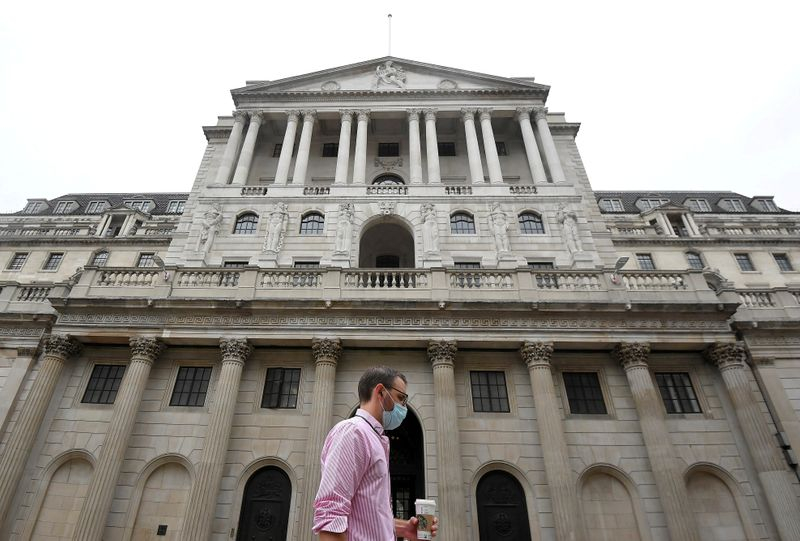Bank of England told to stop buying ‘high carbon’ bonds By Reuters

By David Milliken
LONDON (Reuters) – A group of British members of parliament said on Monday that the Bank of England should stop buying bonds from businesses whose activities accelerate global warming.
Britain’s central bank doubled its holdings of corporate bonds to 20 billion pounds ($27 billion) last year as part of efforts to support the economy through the coronavirus pandemic.
The House of Commons’ Environmental Audit Committee – which looks at public bodies’ impact on global warming – said buying bonds from firms such as energy companies with high carbon emissions contravened government goals to reduce global warming.
“The Bank must begin a process of aligning its corporate bond purchasing programme with Paris Agreement goals as a matter of urgency,” the committee’s chairman, Philip Dunne, wrote in a letter to BoE Governor Andrew Bailey.
The parliament committee has no formal power over the BoE, which is operationally independent, but finance minister Rishi Sunak could potentially change the BoE’s remit to require a greater focus on environmental issues.
Britain will host the global COP26 climate summit in September and Dunne said the BoE should set a good example.
Bailey said in July that the central bank would review its corporate bond holdings once the coronavirus pandemic was over, but said the BoE was right to provide financial support to a wide range of businesses in an economic emergency.
The BoE holds sterling corporate bonds roughly in proportion to the amount issued on markets.
This means 19% of bonds it holds were issued by electricity companies, 6% by gas companies and 3% by other energy companies, while 11% were issued by industrial and transport businesses that are often energy-intensive too.
Bailey has said financial institutions such as insurers need to pay greater attention to environmental risks and said a green ‘stress test’ of their business models to take place in June.

